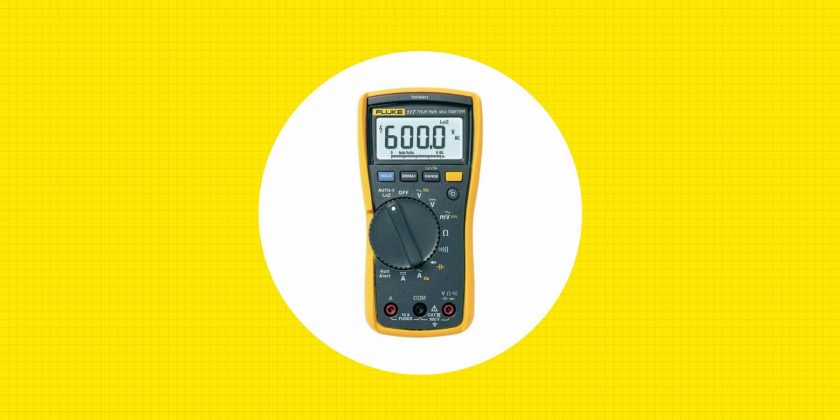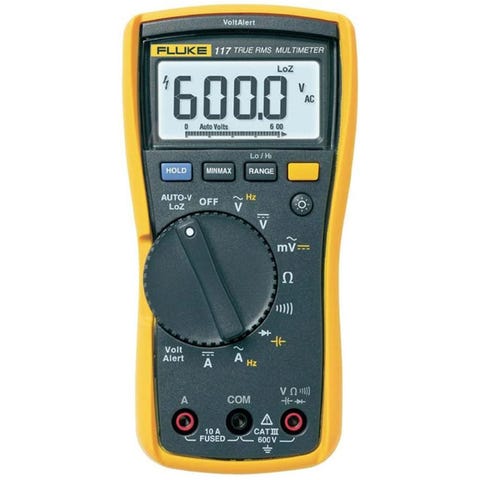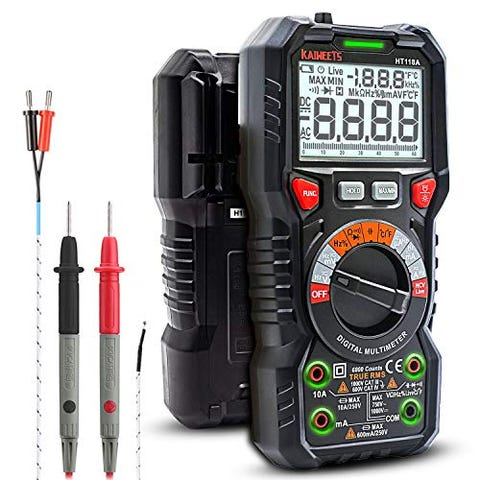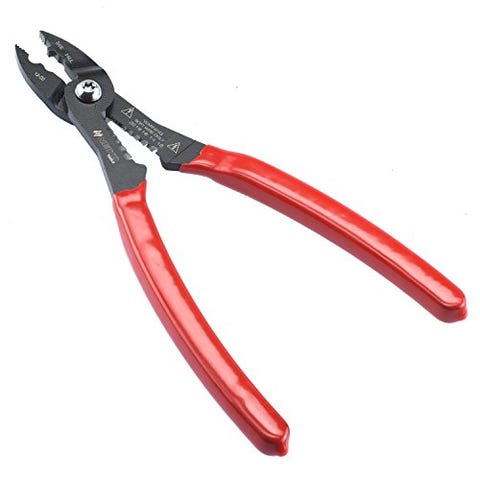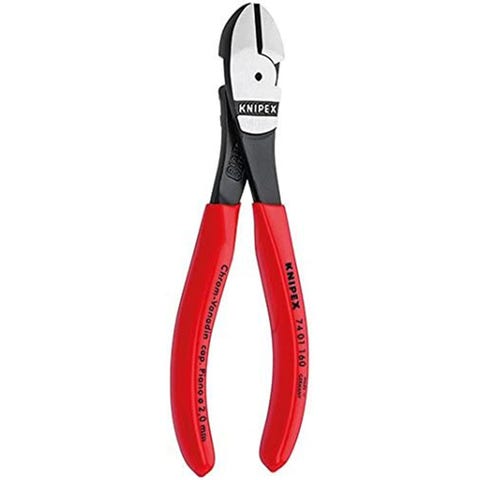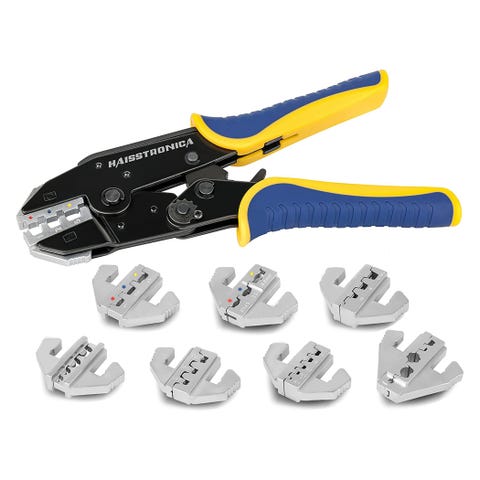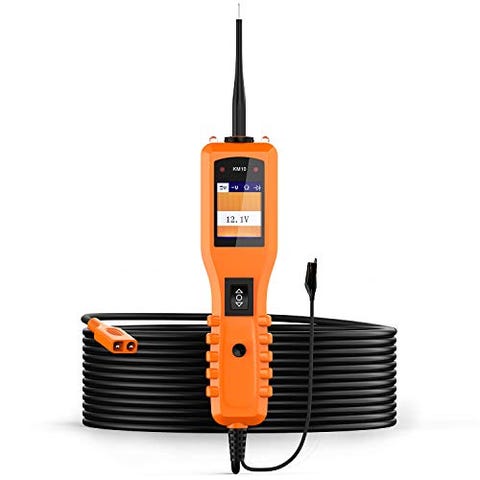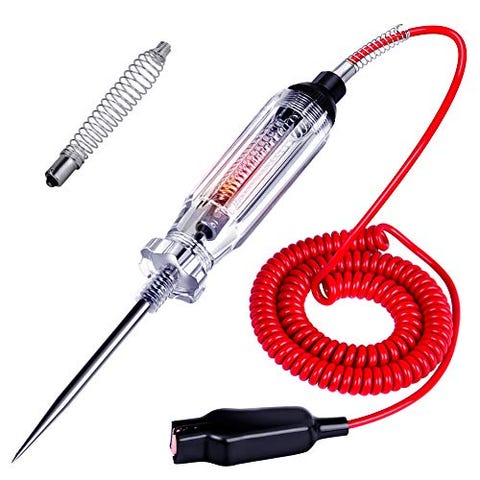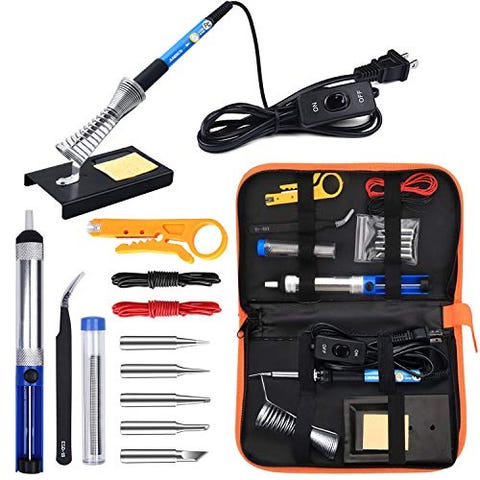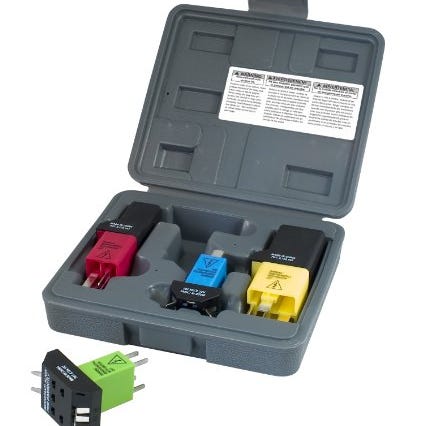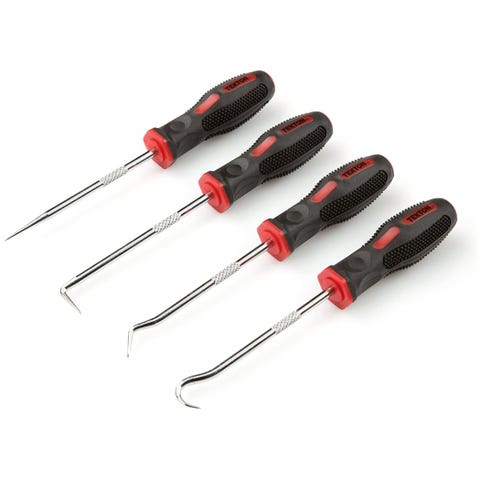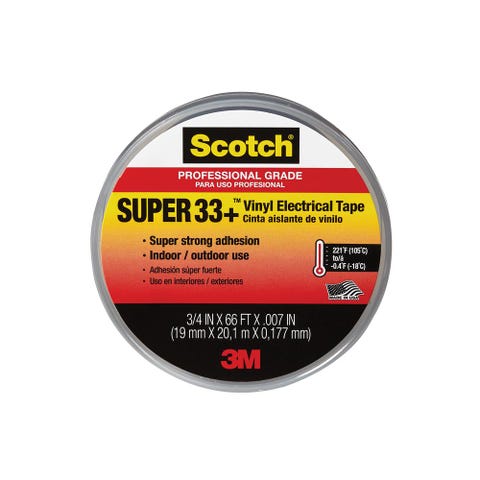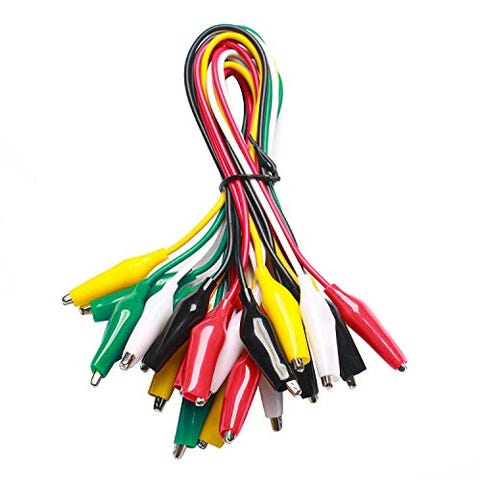
As cars continue to become more electrically sophisticated, long gone are the “garage jobs,” right? Not necessarily. Electricity can be intimidating, but with a some fresh knowledge and the right tools, wiring evolves from a scary spiderweb to just copper and plastic.
Speaking of tools, your electrical apparatus collection should include some basic products—which we’ve included here. These starting tools will give you a fighting chance at solving that random voltage drop or continuously blown fuse.
To bring you this list, we consulted some fellow Nikola Tesla disciples from Autoweek and Road & Track about their favorite electrical tools. It’s a good idea to have them on hand before you go full Zeus-mode under the hood.
Experts Recommend These 1/2-Inch Drive Cordless Impact Wrenches
A good multimeter is essential to any electrical diagnosis, and we love the Fluke 117. Easily read voltage, amperage, and resistance thanks to the crisp display, delivered by the super-accurate True RMS. It’s a fantastic investment if you plan on doing serious electrical work and will save you time and cash.
If you’re looking for more of a budget-friendly multimeter, this one from Kaiweets is a solid choice. It performs most of the basic functions as the Fluke, but you lose some screen clarity and overall durability.
This 4-in-1 tool from Neiko is basically a direct rebranding of the Snap-On version. It features a gripper, cutter, crimper, and wire stripper, which works on wires from 12-20 AWG.
These high-leverage diagonal cutters from Knipex are a top choice for many mechanics. Aside from excelling at slicing through wires, they can easily chomp through vacuum hoses, metal, and even branches in the garden.
If you plan on doing a lot of crimping, check this set out. The kit features seven interchangeable dies that fit nearly any kind of wire available. The built-in ratchet system helps give you the power you need to crimp even the thickest wires.
Power probes have a reputation for controversy: Some technicians swear by them, and some have learned the risks the hard way. As long as you’re careful, it can be a fantastic tool. By connecting to your battery and sending power to certain components, it’s easy to deduce if a part is faulty, or if it’s something further up the line.
A test light is a simple-but-crucial tool to have for any automotive electrical work. Just secure the alligator clip to a ground and probe for power. If the light pops on, you know there’s current—perfect for testing fuses quickly. This one comes a 135-inch spring-wire cord and a spare conductive spring and bulb
You’ll probably have to solder something at some point, and this 14-piece kit has everything you’ll need. It features a soldering iron, five different tips, tin wire tubing, stand, and more, all housed in a compact carrying case. Adjust the temperature on the 60-Watt iron from 200 to 450 degrees C.
Relay testing turns into a breeze with this jumper kit. No need to pierce wires or connect multiple jumper wires; just insert the correct jumper and then stick the relay into the top. The jumper exposes the pins for easy diagnosis.
A good pick set—like this one from Tekton—can be a lifesaver when it comes to electronics. Plastic connectors become brittle over time when exposed to heat, so the old pinch-and-pull strategy can easily break the tabs. If you use a pick to gently open the connector, it can save you a ton of hassle (and maybe even a wiring harness).
Electrical tape can quickly become the most important tool in your entire box, and we love this Scotch Super 33+ stuff. It’s strong, easily tearable, and the stickum they use is probably some alien technology. We don’t care—we swear by it.
These little guys can be fantastic tools for electrical diagnostics; they come in a pack of 10 leads with five fancy colors. They’re nice and durable, and have a 12-month manufacturer warranty.
Source: Read Full Article
